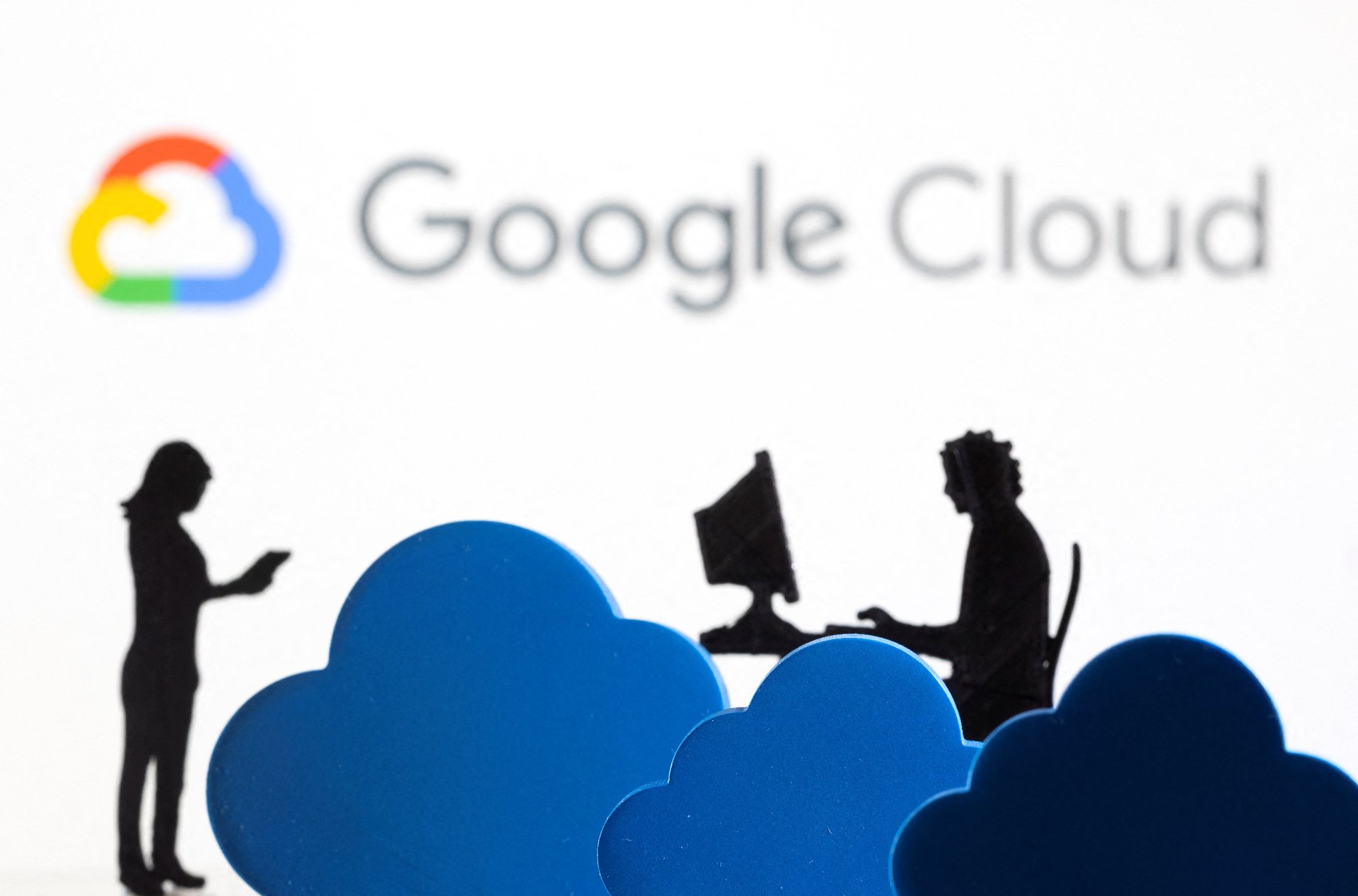The scramble for Africa's data is taking place on the cloud
Africa’s over-dependence on the US for cloud services is now a breeding ground for data colonialism

The demand for cloud-based services in Africa is rising, but the continental tech ecosystem is largely underepresented in the provision of these services.
While there has been a rise in the number of data centers across Africa, keeping on-premise servers running and secure generates huge extra costs. Covering server maintenance costs, power consumption, and keeping top cloud talent ends up costing local companies more than they bargain for.
“No African cloud provider or data center can ever match what Google, AWS and Microsoft provides. Guaranteed security at an affordable price,” Andrew Mori, CEO of Deimos, a South African cloud talent startup, tells Quartz.
Save for Harare-based Liquid Intelligent Technologies, which is gradually advancing cloud penetration, most local cloud companies are finding it difficult to sail in waters dominated by Google Cloud, AWS and Microsoft Azure. But even Liquid’s prices are comparatively higher and many startups plug on the US-based big tech’s cloud, despite popularizing the slogan ‘Africa cloud is liquid’ to mean scalable, affordable and secure cloud systems.
History of cloud computing in Africa
Most government agencies and companies at first used their own in-house data servers for storage and cloud computing, citing cyber security and data privacy concerns. But as digital transformation takes off across the continent, many have been fed up with increased risks of low cloud scalability, difficulties in support and compliance, and have been forced to discard their cloud projects. Unable to create better data centers and cloud software, many African countries are riding on the Big Three in cloud business to run their operations, and now trust them with their private data.
“It is challenging to keep top cloud computing staff who want to join Google. We don’t have the financial muscle to pay as well as Google but we try to pay above local rates,” Mori says.
As such African businesses and governments find it easier to only pay for the cloud resources they use, without any maintenance or payroll costs of running their own cloud infrastructure.
How Africa is being colonized through data
But here is a caveat. Africa’s over-dependence on the US for cloud services is breeding data colonialism, where developed economies prey on Africa’s large-scale data resources from which they extract economic value.
A digital scramble for Africa by global tech companies is on, and the prize is Africa’s data, which is being used to inform solutions for the continent’s numerous challenges.
“Big tech offers Africans the most affordable cloud services and go ahead to train rural citizens on digital skills for free and even offer free online courses to university students. But nothing comes for free, Africans pay with their private data,” Mustafa Sheik, deputy director general of Somalia’s communications authority told Quartz.
This data, Sheik alleges, is then secretly but swiftly analyzed using Artificial Intelligence (AI), and the tech gurus are able to know within seconds what an African wants. “In the next minute, adverts of what they actually need start popping up on Facebook, Instagram, YouTube, Twitter, Google and even via SMS.”
But Google says it’s priority in the cloud business is the protection of the privacy of user and organizational data. “Every day, we work to create a safer internet by making our products secure by default, private by design, and putting you in control of your data,” Jen Fitpatrick, senior vice president, core systems and experiences at Google said in May.
Microsoft, which has invested $100 million in Africa’s cloud business, says with state-of-the-art encryption, it “protects your data both at rest and in transit.” AWS says it allows users to control their data by “using powerful AWS services and tools to determine where your data is stored, how it is secured, and who has access to it.” However Microsoft’s Azure cloud was hacked on Aug. 19, Google’s cloud went offline last November, and AWS’s system was breached in May and its former employee employee Paige Thompson convicted for her role in the 2019 Capital One breach in June, 2022.
In comparison to other markets, Africa is highly vulnerable to data colonialism as most nations, though they try, lack adequate data protections to prevent the extraction of classified information. This data, once extracted, is kept in foreign databases where African innovators and startups cannot access it. Such kind of data residency means startups cannot use this data to make timely business decisions. It also forces governments to keep asking for user data to understand their citizens.
Africa’s contribution to the global cloud market is less than 1%
Africa is home to 16% of the global population and around 5% of global GDP but only accounts for less than 1% of the global public cloud services revenue according to the Rise of the Africa Cloud report by Xalam Analytics. Cloud penetration in Africa is less than 20%.
Winston Ritson, group head of cloud at Liquid Intelligent Technologies is worried that piracy could be a big hindrance in Africa’s efforts to innovating and supplying home-made cloud software. “Many businesses continue to use legacy on-premise versions of software that are pirated. Although this is true all over the world, it is especially true in Africa, where cost occasionally eclipses security or features.”
A 2018 report by Software Alliance says that the overall rate of pirated software across the Middle East and Africa is 56%. Libya and Zimbabwe top the world in pirated cloud software at 90% and 89% respectively.
